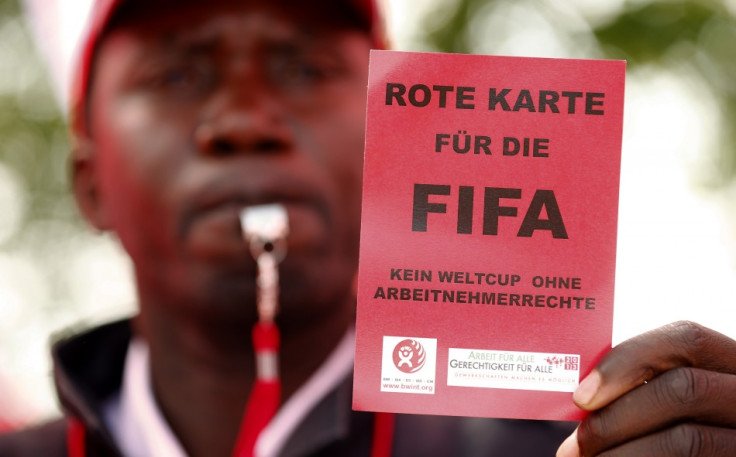Qatar 2022 World Cup: The True Story of the Horror Unfolding in the Desert

"When I arrived in Doha, I was told I must work as a labourer. I couldn't turn round and go home as the boss wouldn't sign my exit permit. I work 60 hours a week and get paid $260 a month. I don't get any safety goggles or boots to work in. I got so fed up, I handed a letter of resignation to my boss, but he ripped it up and threw it in the bin in front of me. "
This is the account of Robert, a Filipino man who signed a contract in his home country to go to Qatar and work in architectural design. Robert expected a smooth passage and fair employment. He got neither.
Robert's is just one of thousands of sad stories in Qatar, a country where migrant workers, employed under unfair and often squalid conditions, keep the economy afloat. A total of 1.3 million migrant workers have been drafted in to work under the notorious kafala system, a strict visa sponsorship which ties workers to their employers
Workers have no right to leave their job, or move to another employer without permission, which is rarely granted. Not a single migrant worker can leave the country unless their employer signs an exit permit, and most workers have their passports held by their employers.
The archaic labour laws affect everyone. From the Filipino marble cutters working 12 hours a day, often with no air conditioning despite summer temperatures which can top 50 degrees celcius, to the Nepalese labourers living more than 14 to a room, sleeping in bunkbeds with little ventilation.
Monthly wages for labourers are US$192 a month, but many workers are not paid on time. Too many people are caught in a loan trap, spending thousands on unscrupulous recruitment agents to secure work.
In a country where trade unions are banned for migrant workers, the labourers have no voice, and cannot tell the world what is really happening.
In the run up to the 2022 World Cup, conservative estimates expect another 500,000 workers will be needed for the billions of dollars of infrastructure projects. Thousands of workers will stream into Qatar to work on the roads, hotels, stadiums and rail networks needed to construct cities from the sand.
The International Trade Union Confederation estimates 4000 workers will die before a ball is kicked at the start of the 2022 World Cup unless reforms are put in place. Unless the itinerant labourers from Nepal, India, Sri Lanka and other poor regions around Asia and Africa receive the treatment they deserve.
Fifa and the Qatari authorities continue in a state of denial. Sepp Blatter contends that "Fifa cannot interfere with the labour rights of any country, but we cannot ignore them", when in fact Fifa-inspired laws have been used in Russia to take away workers' rights ahead of the 2018 World Cup.
Fifa and Qatar have a record which is rife with broken promises. Without reform and workers' rights in Qatar Fifa should re run the vote for the Qatar 2022 World Cup. There should be no World Cup in Qatar without workers rights.
This is the only way Fifa can clean up its tarnished reputation, restore trust amongst fans and ensure workers - and their rights - are recognised and respected.
Sharan Burrow is general secretary of the International Trade Union Confederation, which is taking a lead role in the campaign to strip Qatar of the 2022 World Cup. The ITUC is currently running its own campaign, www.rerunthevote.org, featuring information about Qatar's treatment of migrant workers and and personal insight from the labourers themselves.
© Copyright IBTimes 2025. All rights reserved.




















